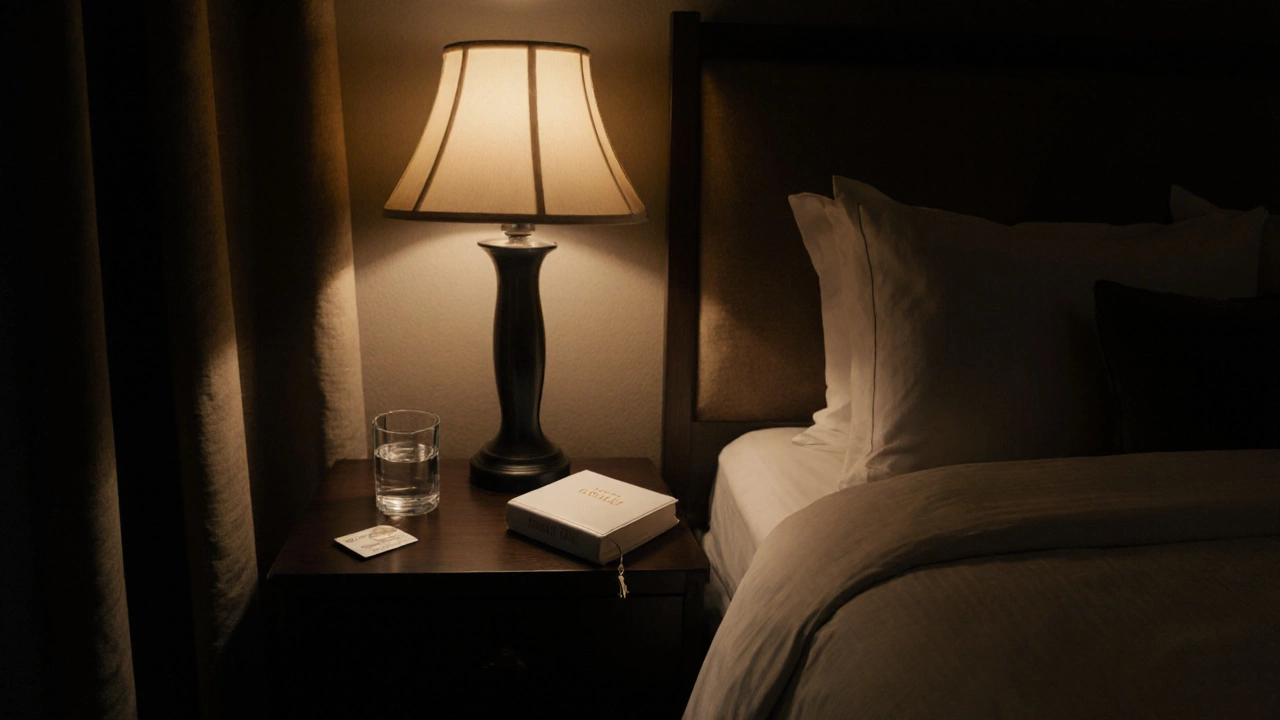
Bible Theft Impact Calculator
Calculate how many Bibles are stolen annually and the financial impact for your organization based on real data from the article.
Theft Impact Analysis
Based on data from the article: 30% of hotel Bibles, 100 stolen per library annually, and 10% of church Bibles stolen.
Annual Impact Summary
Note: Based on article data where libraries lose 100+ Bibles annually, hotels lose 30% of distribution, and churches lose 10%.
There’s a book so common, so widely distributed, that it’s stolen more than any other in human history. It’s not a rare first edition. It’s not a signed collector’s item. It’s not even hidden away in a vault. You’ll find it in hotel rooms, hospital waiting areas, and the back of church pews. It’s the Bible - specifically, the Gideon Bible.
Every year, libraries, hotels, and churches report hundreds of missing Bibles. In the U.S. alone, the Gideons International - the group that places these Bibles in public spaces - estimates that over 100,000 copies are lost or stolen annually. That’s not just misplacement. That’s intentional removal. People take them. Not to read. Not to return. Just to keep.
Why does this happen? It’s not about greed. It’s not about rebellion. It’s something weirder. The Bible is the only book in the world that’s given away for free, in massive quantities, and still ends up being the most stolen. Other books get stolen for resale, for intellectual property, for rarity. But the Bible? People take it because it’s there. Because it feels like a gift they’re allowed to own. Because it’s the one book everyone assumes someone else will replace.
Libraries know this. Many have stopped stocking Bibles in their public lending sections. One public library in Portland, Oregon, stopped offering Bibles after more than 200 went missing in two years. Staff didn’t even bother tracking them anymore. The cost of replacing them - $8 each - added up fast. And every time they replaced one, another disappeared within weeks.
Hotels are even worse. The Gideons have placed over 2 billion Bibles in hotels worldwide since 1908. Yet in 2023, a survey of 500 U.S. hotels found that nearly 30% reported losing more than half their Bibles each year. Some hotels now use locked Bible drawers. Others replaced them with digital tablets offering religious content. A few just stopped offering them entirely. One hotel manager in Texas told a reporter: “We used to have three per room. Now we have one. And we lock it.”
But here’s the twist: the Bible isn’t stolen because it’s valuable. It’s stolen because it’s worthless - in the eyes of the thief. You can’t sell it on eBay for more than $3. You can’t resell it to a used bookstore. It’s not a collector’s item unless it’s 200 years old. So why take it? Because it’s free. Because it’s everywhere. Because no one ever asks for it back. It’s the ultimate “take one, it’s okay” item.
This isn’t unique to the Bible. Other books get stolen too - but nothing comes close. The Little Prince? Occasionally. The Da Vinci Code? Sometimes. But none of them are stolen by the thousands, every single year, in every country. Even the Quran, which is also widely distributed, doesn’t face the same level of casual theft. Why? Because the Quran isn’t handed out in hotel rooms. It’s not placed on nightstands like a complimentary toothbrush. The Bible’s accessibility is what makes it vulnerable.
There’s also a psychological angle. People who steal the Bible often don’t think of it as theft. They call it “taking a keepsake.” Or “borrowing.” Or “saving it for later.” A 2021 study from the University of Chicago’s Center for the Study of Religion and Society found that 62% of people who took a hotel Bible said they didn’t see it as stealing because “it was meant to be shared.” That’s not logic. That’s cognitive dissonance. They’re not criminals. They’re just normal people who don’t think a free book has ownership rules.
And yet, the Bible remains the most stolen book in the world. Not because it’s the best. Not because it’s the most important. But because it’s the most available. It’s the only book that’s been mass-produced, mass-distributed, and mass-given away - without ever being asked for permission.
Some libraries have tried to fight back. One in New Zealand started placing a small note inside each Bible: “This book was given to you. Please don’t take it. If you want to keep it, ask.” The result? Theft dropped by 40% in six months. People didn’t stop taking it - but they started asking. That’s the real story. The Bible isn’t stolen because people want it. It’s stolen because no one ever told them not to.
There’s a quiet irony here. The very thing that makes the Bible so powerful - its accessibility - is also what makes it the easiest to lose. It’s not hidden. It’s not guarded. It’s not locked away. It’s right there. On the table. In the drawer. Waiting. And because it’s free, people assume it’s meant to be taken.
Compare that to a rare book. A first edition of Frankenstein might sell for $50,000. But no one steals it. It’s too obvious. Too valuable. Too watched. The Bible? No one’s watching. No one’s counting. It’s just… there. And that’s why it’s stolen more than any other book on earth.
So what’s the answer? Stop giving them out? That’s not going to happen. The Gideons still distribute over 10 million Bibles every year. Churches still hand them to new members. Hospitals still leave them on bedside tables. The tradition isn’t going anywhere. Maybe the real solution isn’t to stop giving them away - but to change how we think about them. Maybe we need to treat the Bible like a library book: something borrowed, not owned. Something meant to be passed on, not kept.
Or maybe we just need to stop pretending it’s not happening. The most stolen book in the world isn’t stolen by thieves. It’s stolen by ordinary people who think it’s okay. And that’s the real mystery.


